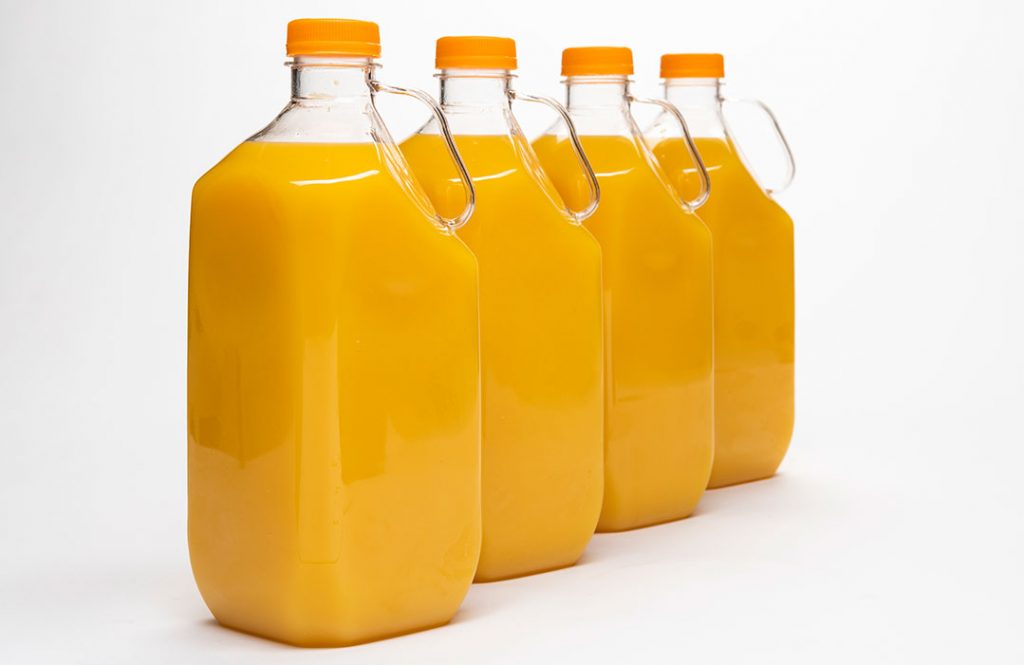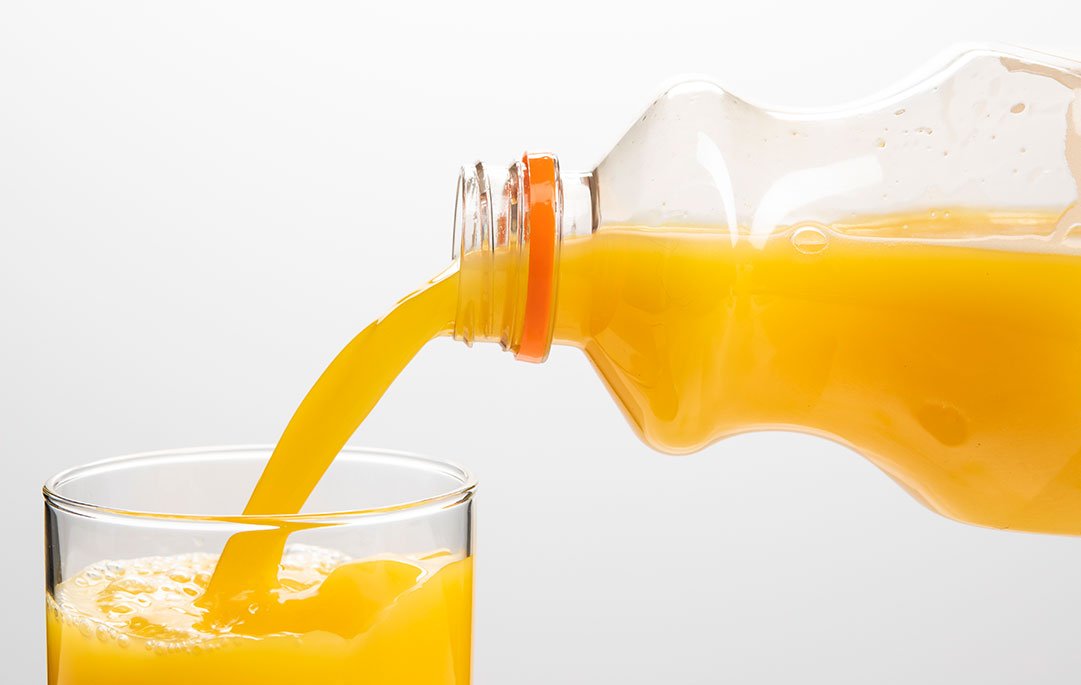I recently read that Americans drink about 30% of their daily calories. Whether it’s bottled juice, isotonic drinks, coffee or carbonated sodas, we love our beverages. As a bottler, you want to capitalize on this trend by realizing the most profitable ROI model possible. It can be tough to choose which juice manufacturing process is right for you and your business.
To optimize your juice line, you have to first gain an intimate understanding about the strengths and weaknesses of you current operation, and the various options for cost savings. This can be a challenge. In this article, we are going to talk about three popular processing methods for your bottled juice or isotonic drinks, and make some suggestions for how you can approach it all in an effective way.
It would be easier if there was a one-size-fits-all solution for the best juice manufacturing process, but it’s more involved than that. There are many factors to consider, and every plant and production line is different. Let’s start by distinguishing between three popular processing methods.
1. Hyperbaric Processing or High Pressure Processing (HPP)
Hyperbaric processing is a cold pasteurization technique that uses high pressure to crush bacteria while maintaining the microbiology of your product. The cold juice is then added to a cold bottle.
This juice manufacturing process preserves the health benefits of the product, but it requires a heavy, rigid container.
2. Hot-Fill Processing
Hot-fill processing is a less expensive option, but it will destroy some of the nutrients in your beverages. Hot-fill heats the juice to kill the bacteria. The process is filling hot, capping, inverting the bottle and then cooling.
The traditional hot-fill method included panels to allow for the vacuum process that occurs when the product cools inside the sealed container. Now there’s a technology that includes a special base in the PET bottle. This base contracts during the cooling process, which allows greater flexibility for your bottle design.
Since it doesn’t take much energy to cool down the product, you can raise your temperature for faster filling. However, the case will fail if you don’t properly cool down the product. There are nozzles, swirling methods and other ways to help reduce the temperature during cool down.
Hot-fill processed juice and isotonic drinks usually have a shelf life of 6 to 12 months, depending on format size. This process works well for non-carbonated beverages like juices and isotonic drinks.
3. Aseptic Processing
Aseptic processing fills the bottle at room temperature under extremely sterile conditions. The enclosure uses “glove box technology.” It is required to be cleaner than even an operating room.
This is a challenging process that requires more expensive equipment – but it allows you to use less expensive bottles and provides a longer shelf life, i.e. 18 months without refrigeration.
Choosing the Best Juice Manufacturing Process
Let’s review the pros and cons of each of method.
High Pressure Processing (HPP) kills 99.9999% of the bacteria in the product, and it does so under high pressure. This requires a special container for the product. The bottle has to be able to handle high pressure being exerted on the outside of the container.
The closure that goes on top of the bottle will have to be different as well. It needs to be more robust and able to withstand pressurization from the outside because that’s what kills the bacteria.
Hot-Fill Processing also requires a specific type of PET bottle. When you hot-fill a container, you are ultimately going to have to cool it down. The bottle dimensions physically change during the cool down process. Certain features of the bottle (side panels or base) have been uniquely designed to give the container a way to implode without deformation during the cooling process and finish at the specified dimensions. These designs are frequently patented.
So, if you want to hot-fill your product, there’s a good chance you’re going to have to pay a royalty to a bottle designer, even if you’re self-manufacturing the bottle. Of course, you’ll want to take that cost into consideration.
Aseptic Processing doesn’t require a special PET bottle, so there is a much broader range of containers. You can look at various container concepts to not only choose one that will function correctly, but also one that is aligned to your brand’s image. In all cases, you can choose a lighter weight bottle also.
However, the equipment needed for aseptic processing is more expensive. Plus, the process is more costly to maintain because the whole system has to be shut down and cleaned often.
There’s a lot to think about?
- Do you want to lose some productivity time while you clean the system (Aseptic Processing)?
- Do you want to potentially pay a royalty on a more expensive container, and use equipment that is less expensive and easier to maintain (Hot-Fill Processing)?
- Do you want to consider a much more expensive container (heavier) to preserve the health benefits of your product (High Pressure Processing)?
How can you be sure to choose the best juice manufacturing process to maximize your ROI? InterTech’s integration experts can help you make the right decision. That’s what they’ve done for 30 years.

InterTech’s Complete Cost Model
Regardless of which method you’re considering, you’ll need a complete cost model. This cost model should compare each process versus the others. It should show you exactly what each option will cost and what the best solution is for you based on what you want to do.
If you are an existing manufacturer, this cost model should not only include the current costs you are incurring, but cost saving options. If you are a new juice or isotonic drink manufacturer, this cost model will include all the costs associated with your new line.
It will be tough to determine if you are using the best PET bottle for your line if you can’t evaluate all of your options. Sometimes just changing one small part of the process can have a huge cost savings.
In the end, a cost model allows you to make confident, data-driven decisions.
We suggest you engage InterTech’s team as early in the process as possible. That is where we can provide you with the most value (before you start buying equipment).
Our cost models are detailed and unbiased. InterTech is loyal to you – not an equipment supplier. We don’t try to sell you any equipment from any specific supplier. Our only goal is to give you the information you need to make good decisions. It’s hard to get this unbiased approach from OEMs. They often spin the information to their advantage.
At InterTech, we work for you, and your best interest is always our first priority. Most of our engineers have over 25 years experience in the industry. That diversity and experience brings a lot of value to you and your juice line. Our ultimate goal is to help you get the best return on your investment.
Our cost models capture and reflect all costs and options for your comparison so you can confidently decide which juice manufacturing process best suits your needs and which PET bottle design works best for your product.
We start this process by asking you a series of questions
- What exactly are you putting into your PET bottle?
- Does your juice have pulp in it?
- Are there any type of particulates that need to be managed, maintained or dosed?
- Which type of processing are you currently using?
- What is the expected shelf life of your juice (or isotonic drink)?
- What is the shipping radius of the product?
- What are your expectations with this product?
We dig deep into what your goals are and the vision for your company. We put together the most cost-effective way to meet those goals. We figure out how to get you from point A to point B.
This is a more extensive process for juice and isotonic drinks than it is for water and carbonated beverages for example. It takes a greater deal of evaluation than the other categories of beverages. This is because of the different ways to process the product and what the product requirements are.
Juice (and isotonic drinks) are probably one of the most complex beverage market segments in terms of processing and equipment choices. If you want to take a deep dive into what your options are, and what those options will cost, this cost model is for you. When we make a suggestion, we want to know that it will fulfill all your needs.
For a list of 9 common juice manufacturing line issues InterTech can help solve, please visit the Juice Production page of our website.
Thank you for reading. Please reach out to us at any time. We look forward to speaking with you!

For over 35 years, InterTech has helped hundreds of food and beverage plants implement a variety of manufacturing projects. Whether it be a single line or multi-plant roll out, we have helped reduce their operating costs by $2-10 million per year.
Let us model your operations and show you the feasibility of your project ideas. The earlier we get involved, the more money we can help you save.
For multi-plant clients, we have helped develop long-term plans to capitalize on the savings of initial projects in order to support future projects whose returns are lower.
We also develop Requests for Information (RFIs) or Requests for Proposals (RFPs) for major equipment so our clients can be assured they are getting the correct equipment at the best value. By assembling all of the information we receive into a Total Cost of Ownership, we can forecast operational costs for the long-term and establish budgets for plants that have not previously been self-manufacturing their bottles.
Our clients include Cargill, AAK, Constellation, Ghirardelli, and both Coca Cola and Pepsi Cola (and their respective bottlers) and many others. We invite you to view a more complete list of our esteemed past and current clients.
Working with InterTech’s experienced engineering staff will help you make informed decisions and avoid costly changes.
InterTech
120 Interstate North Parkway SE
Suite 102
Atlanta, GA 30339
770-431-5959


0 Comments